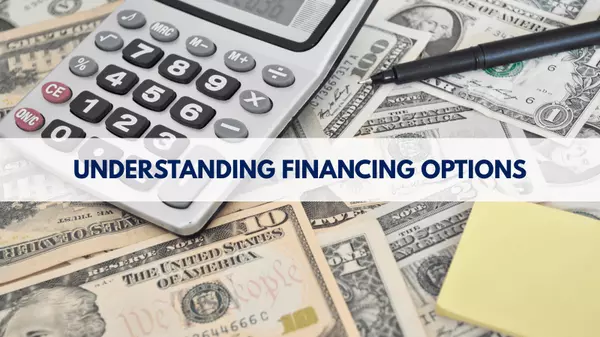How Inflation and Interest Rates Impact Home Buyers & Sellers

When it comes to real estate, a few percentage points can make or break your budget—and your plans. Inflation and interest rates may seem like terms best left to economists, but if you're buying or selling a home, they're absolutely your business.
In this post, we’ll break down how these two economic factors affect your buying power, your selling strategy, and your overall real estate experience—without needing a finance degree to understand it.
What Is Inflation, Really?
Inflation is the gradual increase in prices over time. It affects everything from your morning coffee to your monthly mortgage. As inflation rises, your dollar buys less—and that means homebuyers may feel squeezed, especially when combined with rising interest rates.
Interest Rates: The Cost of Borrowing Money
Interest rates are set by central banks and financial markets, and they directly influence mortgage rates. When rates are low, borrowing is cheaper—which typically boosts homebuying activity. When they rise, monthly payments go up, reducing affordability for many buyers.
How Inflation and Interest Rates Affect Home Buyers
-
Higher Mortgage Rates = Less Buying Power
As interest rates rise, the same monthly budget buys less house. A 1% increase in rate can mean hundreds more per month on your mortgage. -
Increased Urgency
When buyers expect rates to go higher, they may rush to lock in current rates, leading to short-term demand spikes and competition. -
Tighter Budgets
Inflation drives up living expenses—gas, groceries, insurance—which leaves less room in the monthly budget for a mortgage. -
Potential Silver Lining
Slower markets can mean fewer bidding wars and more room to negotiate if you’re patient and financially prepared.
How It Affects Home Sellers
-
Shift in Buyer Behavior
Rising rates shrink the pool of qualified buyers. Sellers may need to price more competitively and be flexible on terms. -
Longer Time on Market
Homes may not fly off the shelf like they did in a hot market. Staging and strategic marketing become more critical. -
Timing Matters
If you’re also buying after you sell, your next home might come with a higher mortgage rate—so plan accordingly. -
Renovations ROI May Shrink
Inflation affects construction materials and labor. Renovating before listing might not yield the same return it would have a year ago.
So, What Should You Do?
Buyers:
-
Get pre-approved to understand your real-time budget.
-
Work with an experienced local agent (like us!) to navigate fast-moving market conditions.
-
Consider creative financing options or buying down your rate.
Sellers:
-
Price smart—don’t chase last year’s market.
-
Highlight features that lower cost of ownership (new windows, insulation, energy efficiency).
-
Be ready to negotiate—not just on price, but on closing costs or contingencies.
Final Thoughts
Economic shifts are inevitable, but they don’t have to derail your real estate goals. Whether you’re buying your first home, upsizing, downsizing, or investing, knowing how inflation and interest rates impact the process helps you make informed decisions.
At TeamPete Realty Services, we help clients thrive in any market. Reach out today, and let’s put a strategy in place that works for you—no matter which way the economic winds are blowing.
Categories
Recent Posts











